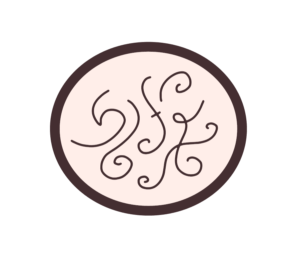Three Inspiring Messages

It’s interesting how messages get received, grasped and absorbed over countless times, each time reaching a deeper level of our awareness. A bit like reading the same book or watching the same movie again – we see something different the second time around. A sentence or a scene may open a new door by provoking a thought, evoking an emotion or triggering a memory. All these stimulus may take us to a new realisation, a fresh insight which changes the way we perceive ourselves or our world.
We may hear a message 10 times before we derive any real meaning from it, even though we can comprehend the message conceptually. Depending on how open we are, that same message can bring on a major internal shift which bridges us to a point of profound healing and growth.
Messages can come from spoken words, written words, song lyrics, words whispered by the wind, etc. I usually recognise a message when it stops me in my tracks. I’d like to share three inspiring messages that have helped me in the past week.
“You get out of it what you put in.”
One of our clients remarked at the end of a Body Renew class that we do indeed “get out of it what we put in” – referring to how as they got more used to the breathing and movements, they were able to apply more of themselves into the sessions and get increasingly more enjoyment out of them.
This is an important message for anyone who’s on a journey of healing and growth. It would be far easier for us to be passive while our issues get fixed for us. Unfortunately, there is no short-cut in overcoming the emotional or psychological blocks that hinder our expression as self-loving beings. Nobody can do it for us. The first step in healing and growth is Responsibility. What stops us from getting well, ending destructive patterns and becoming happier isn’t the lack of tools but a lack of responsibility, usually triggered by a fear of facing our truth and the ensuing outcomes of doing so. And so the preferred route is escapism.
In our rehab centre, I see evidence of this often. People finding all sorts of excuses to not participate or not look at all their issues, failing to see that they are all and the same issues that had driven them to addictions and to the brink of destruction. It’s the same theme – escapism – whether it is escaping by drugs, alchohol, or choosing to avoid dealing with the pains behind their issues. These different manifestations of escapism must be looked at and dealt with responsibly if addictive tendencies are to be healed.
Nothing works without our putting in the work. We can be given tools, but tools are just that – we need to use the tools to make them work for us. Three basic elements that help determine the success of a programme:
- Commitment gets you to approach something with discipline – e.g. turning up to a scheduled session and sticking to a programme until you reach your goal. Your vision of your final destination must be strong enough for you to stay motivated.
- Presence of mind, heart and spirit determines how much you’ll get out of a session you participate in. How present are you in the session? If you are only participating with your physical body but your mind and everything else are floating off elsewhere, you will gain little benefit.
- Openness of your heart and mind is important while you are participating on every level of your being. This allows you to relax your defences so that real healing and re-learning can take place.
“You do the right thing, the right thing will come to you.”
My colleague and head therapist at our centre said he often told his clients this during his many years of working with hardcore criminal and drug abuse cases. This message struck me as a simple and effective way to approach a dilemma, conundrum or any conflicting situation.
First of all, I believe there isn’t such a thing as “the right thing” as such. The “right thing” here simply means what we know to be our deepest truth in that situation – doing the right thing means acting in response to that truth. It’s a matter of Intention. In other words, “doing the right thing” means “having a positive intention” behind your action. The same action can be inspired by two different intentions – one can set us back in our spiritual growth while the other can elevate us to a more evolved state.
Making a choice based on a positive intention is important because it recognises the imperfection of being human: that we cannot know everything on a conscious level. But that imperfection is balanced by the perfection of everything being in flow to a natural order kept by a force that governs all life.
In other words, when you do the right thing, you can relax into the knowledge that what is coming back to you will be the best for you, no matter what form it manifests. That trust and acceptance can be very healing in that it allows you to move from a situation in which you’ve been stuck and set forth in a new direction.
“Always onward, going forward without a regret.”
A very close friend who is writing an autobiography described his block to me recently:
“It is a block in myself that prevents me from writing, lack of commitment which slows my words to a trickle and makes me study them carefully, over and over, until it renders me voiceless.”
I can relate to this well. This kind of mental self-abuse – the constant, obsessive worrying and judgement of what we’ve done and the output we’ve expressed – is often what cripples us, stops our progress and hinders our self-expression.
If we weren’t so judgemental about ourselves, we’d be less bothered by what we’ve said or done; and if we were able to accept and let go of our past actions, we’d be less judgemental about ourselves. Constantly analysing and judging our actions is a form of self-punishment. It may be worthwhile to ask, “What am I punishing myself for? What am I judging myself for?” Stopping for a moment of self-inquiry can transform an automatic, unconscious response into a well-considered action that moves us forward from stagnation to greater happiness.
My friend went on to say:
“I’m tackling this now by not allowing myself to look back, always onward with the narrative going forward without a regret.”
Sometimes we need to take a deliberate step to drive a stake through our fear to free up our resistance to moving forward. A mustering of guts, will power and determination without too much thinking can quickly build up internal fuel and allow us to release a concentrated burst of energy to break out of stagnation. If we allow ourselves to think too much, we’d find every reason to stop ourselves and stay in stagnation. A lot of our thinking is irrational, fear-based, and holds little truth. Such thinking can be seen in its true light once we’ve pushed ourselves out of a state in which it imprisons us.
One of the sources of this type of thinking is what we perceive to be our mistakes – having done something that’s caused ourselves and/or other people unhappiness. But making mistakes is one way of growing as it provides us with a reference of how to do things differently. Yet we can only grow out of a mistake if we look forward from that mistake, only looking back to reinforce our lesson and focusing on being healed and renewed as a result of it.
